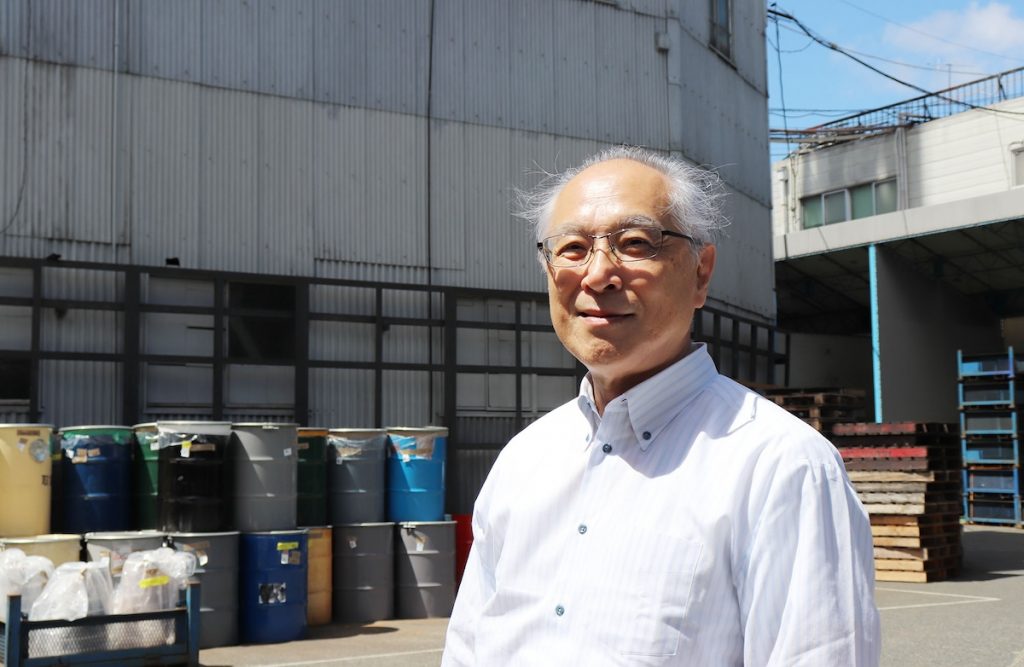
Sanyu Plant Service's bio-jet fuel demonstration plant in Kawasaki. (Photo courtesy of Sanyu Plant Service)
Read the full interview (Part 2) on Japan 2 Earth - Mass Production of Bio-Jet Fuel in Japan: Embracing the Challenge
In business for 75 years, Sanyu Plant Service (Sagamihara City, Kanagawa Prefecture) has established a reputation for handling difficult industrial waste and operates based on its policy to "protect the environment and resources." Not only does the company upcycle coffee grinds as feed for dairy cows, it is also working to produce bio-jet fuel.
Japan 2 Earth and JAPAN Forward Senior Writer Mika Sugiura interviewed President and CEO Kazufumi Komatsu about projects aimed at leading the company into the future.
To combat global warming, the International Civil Aviation Organization (ICAO) has set a target of zero increase in greenhouse gas emissions in the international aviation sector after 2021. When targets become mandatory in 2027, the introduction of bio-jet fuel will be a must.
Last of two parts. Excerpts follow.
Sustainable, Next-Gen Bio-Jet Fuel
You were selected for a NEDO (New Energy and Industrial Technology Development Organization) funded project to develop bio-jet fuel technology. What is the status of the research and development?
Since 2015, we have been working to develop the technology with the support of NEDO. We aim to produce second-generation (non-food biomass) bioethanol that can be made into jet fuel.

Although bio-jet fuel production is not very efficient cost-wise, if something is not done, Japan will end up having to buy bio-jet fuel from overseas at crazy high prices. To prevent this from happening, in 2025, we will start operating a production plant in Ehime Prefecture that will use recycled paper from paper manufacturers as raw material. We will thus become the first in Japan to mass-produce bio-jet fuel domestically.
Continue reading Part 2 of the interview on Japan 2 Earth as well as Part 1 on Sanyu Plant Service's upcycling project with Starbucks.
And find more great articles on the environment and the challenges of achieving the SDGs on our new website Japan 2 Earth (J2E), sparking a transition to the future.
(Sanyu Plant Service is a Logo Partner of JAPAN Forward subsidiary website, Japan 2 Earth.)
RELATED:
- New Law Pursues SDGs Through Sustainable Aviation Fuel from Waste Oil and Algae
- Japan's NYK Line Leads the Way on Biofuels for International Shipping
- INTERVIEW | Female Company President Brings New Wave to the Waste Industry
(Read the article in Japanese.)
Author: Mika Sugiura







